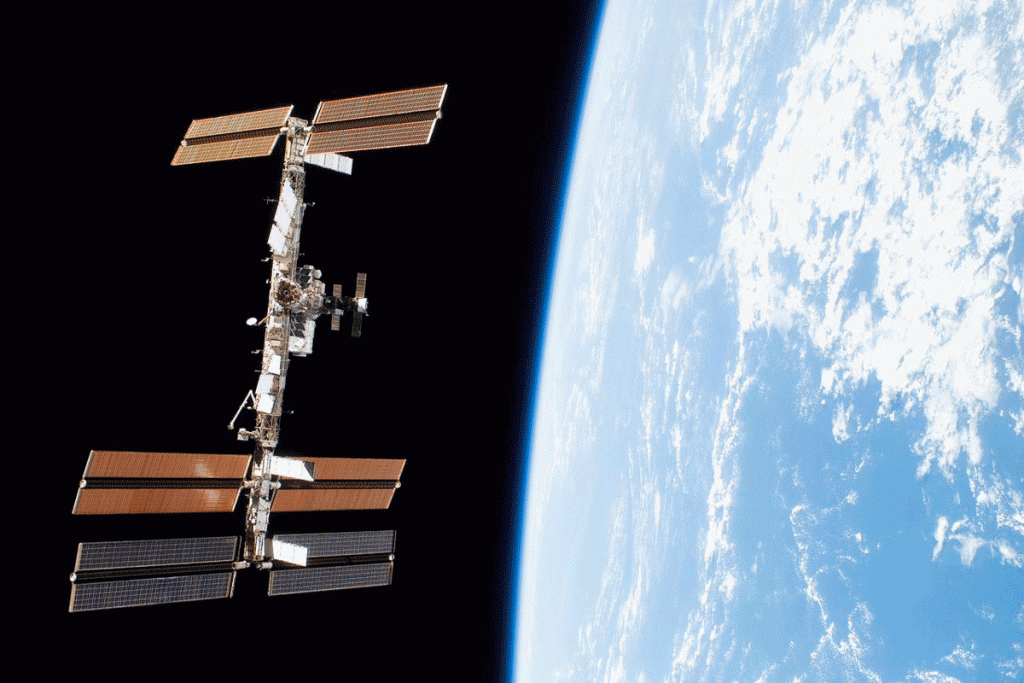UCF Class Spotlight: Space Law

The International Space Station back dropped by space and Earth’s horizon. (Photo credit: NASA)
BY LAYLA FERRIS ’18
Class Name
INR 4404 – Space Law
Description
A look at how rules and laws regarding outer space pertain to nations, corporations and individuals — and who should be making and enforcing them.
Instructor
When is it offered?
Usually once a year
How many students in a class?
20-30
Prerequisites
Junior standing
From the Professor
Why is studying space law important?
In the early years, there wasn’t a whole lot of general interest in the area because only nation-states were doing space exploration. Now with the commercialization of space, who can participate in and impact the solar system is rapidly changing. NASA is relegating some of the more operational side of things to companies like United Launch Alliance and SpaceX while the space agency returns to its original mission, which is research. So there’s much more interest now and need for a wider audience examining space law.
Why do you enjoy teaching this course?
It’s an area for students that is different. With Star Wars, Star Trek and CGI, there’s an interest in space. I wanted to introduce students to this new area of law, rather than the traditional ones.
How did laws for outer space first come about?
Any time that you have nation-states that are interacting in something, there have to be some sort of rules of the road, some sort of ground rules for those interactions. Once Russia launched Sputnik in 1957, the United Nations decided to form the Committee on the Peaceful Uses of Outer Space, which still exists. The first thing that we did then was set up the Outer Space Treaty in 1967, which remains the cornerstone of human activity in outer space. For example, the treaty bans the placement of weapons of mass destruction in space or on any celestial body and seeks to promote peacefulness in outer space, among other things.
How could the announcement of the United States Space Force as a sixth branch of the military affect space law?
I should think that one might simply use the analogy of armed forces that we have for other areas like air, sea, land — space would be another one of them. And the question then would become, “Do we want to try to be proactive and create regulations governing what would happen out there before they actually happened?” or “Are we going to see what happens and then write regulations in the aftermath of that?” We do have some articles in the Outer Space Treaty that tell us to some aspect that outer space is demilitarized. It’s certainly denuclearized. To what extent then do we now have to go in and clarify all that with the actual existence of a Space Force? In one sense, we’ve thought about a Space Force for a long time, but it was theoretical. Now, we may seriously need to address this.
What do you think is the No. 1 legal problem stemming from human activity in space?
I think it’s changing. In the early days, one of the major areas from a legal perspective was looking at the availability of, or the allocation of, slots in the geostationary orbit because that is a very limited resource. Now, where we privatized and commercialized much more of the activities in space, the legal issues are going to revolve more around things like ownership: Who has a right to extract minerals from the moon or from other celestial bodies? From asteroids? We still don’t know where some entities end and the other begins, like airspace, which nation-states own, and outer space, which belongs to everybody. So that’s a brave new world of law that we’re going to have to deal with, which is radically different from what it was historically.
From the Student
-Madison Redington, political science major with a concentration in international relations
What prompted you to take this course?
I took this course in Fall 2018 because I really liked the professor. I also don’t really know much about space other than the scientific aspect of it, and I was interested to learn more about the legal aspect. It’s such a different concept and a totally different world up there so it’s interesting.
What did you like the most about the class?
It gave me a new perspective of what exactly space is and all the opportunities out there. So I definitely learned a lot of really fascinating concepts of how we are applying rules and laws that we apply on Earth and how we’re extending those to space and space shuttles, which I never thought about. I never thought about people committing crimes at the International Space Station and who has the jurisdiction over that.
What was challenging about the class?
I’d probably say the workload as far as the amount of reading alone we had to do. We were reading law review articles, so it was definitely really dense reading. Because space and technology are advancing faster than the legal field, there are a lot of gaps you have to deal with when learning about it. You’re kind of trying to put pieces of a puzzle together.
What’s something you learned that stood out?
I’d have to say learning about the different ways that we impact the environment. I’ll never forget learning about how something so tiny as the paint chips off of a satellite or rocket turns into space debris. A millimeter of something can completely destroy something up there because everything goes so fast.
Space Law isn’t currently being offered, but you can register for the course in the Fall 2019 semester.
